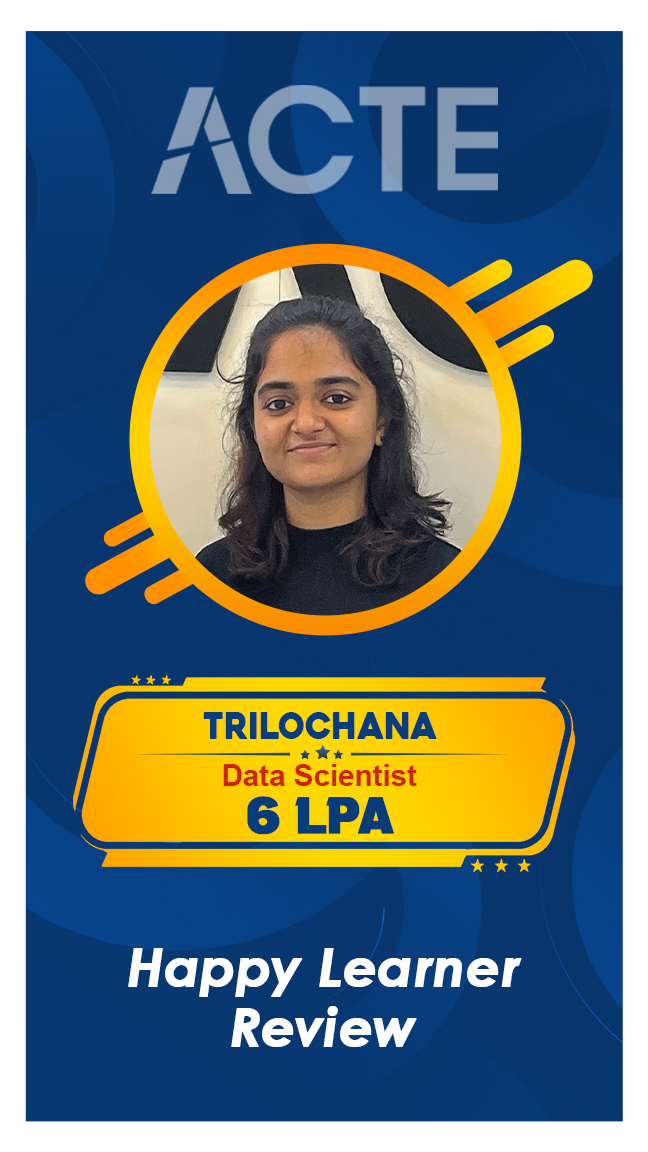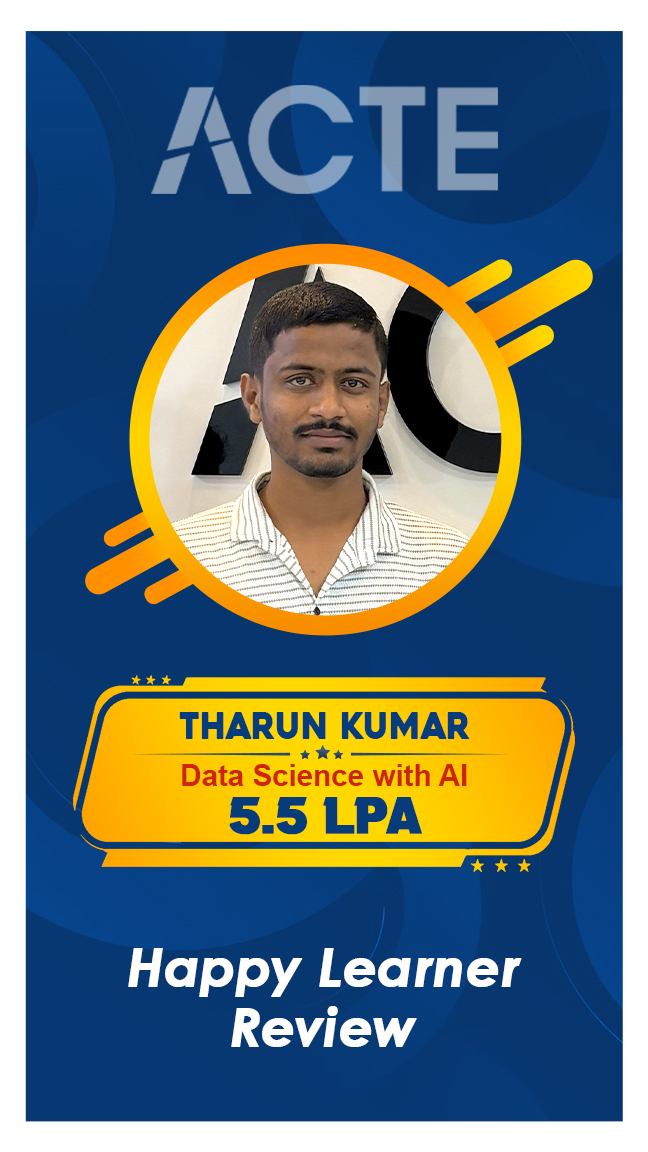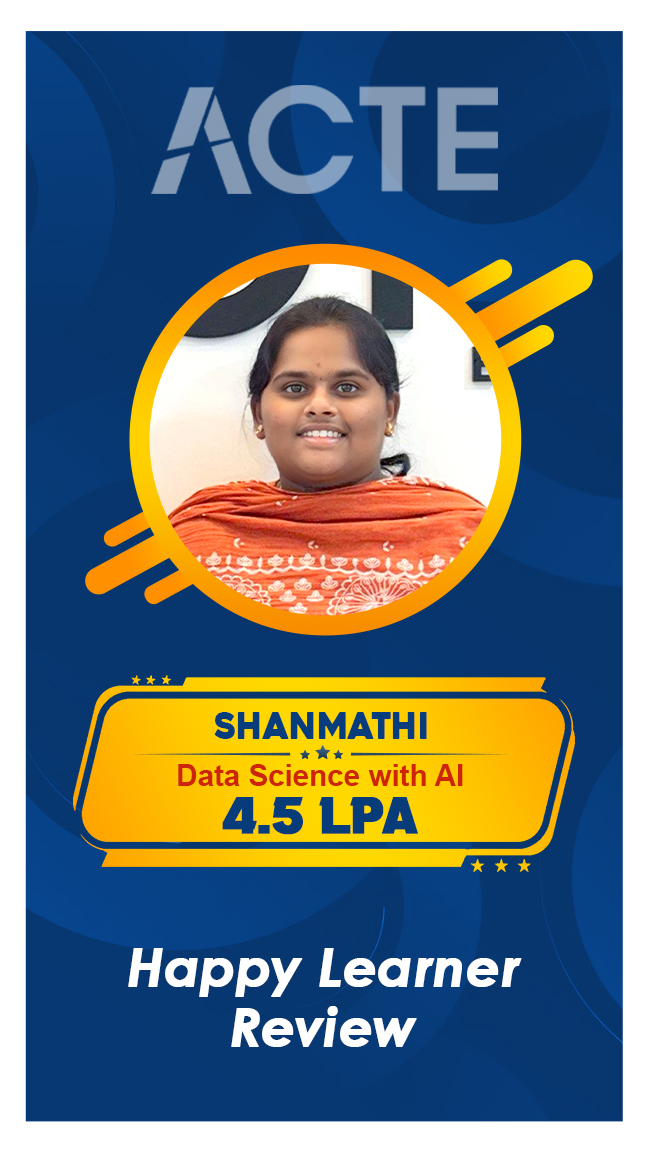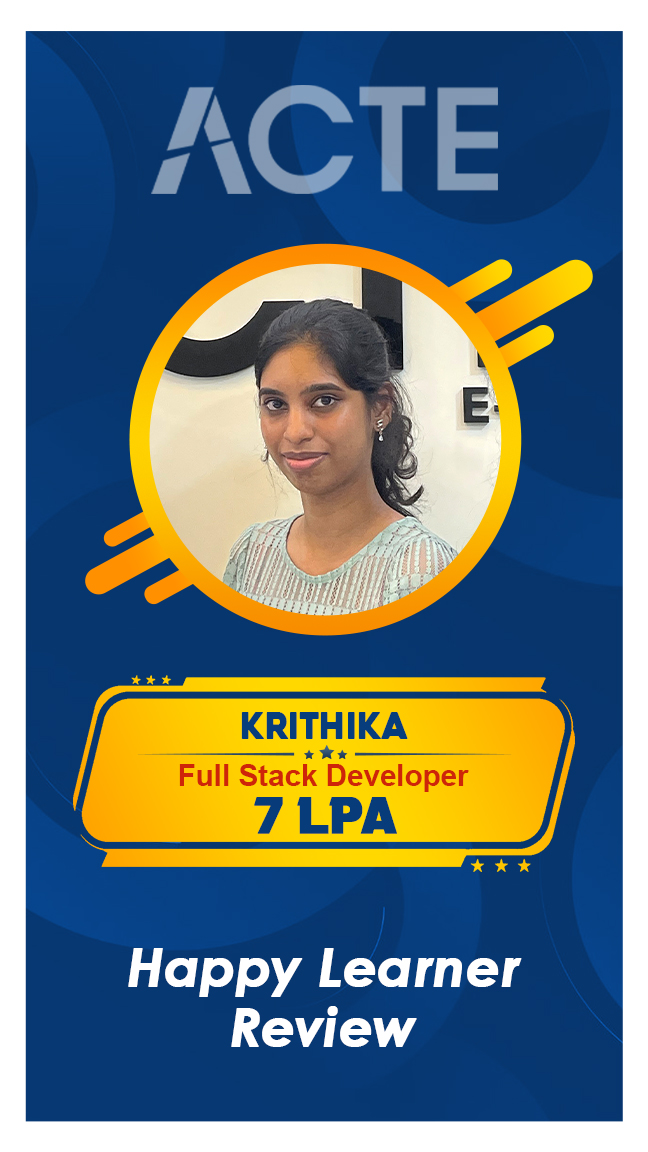What You'll Learn
Cloud Computing Training in Pune Discover the foundations of service models, deployment models, and cloud infrastructure.
Get practical experience configuring cloud environments and effectively allocating resources.
Learn how to use well-known cloud platforms like AWS, Azure, and Google Cloud by working on actual projects.
Recognize risk management techniques, data protection, and cloud security ideas.
Examine CI/CD pipelines, automation, and DevOps procedures in a cloud setting.
To advance your career and cloud abilities, enroll in the Cloud Computing Course in Pune.
Cloud Computing Training Objectives
- Increased adoption of multi-cloud and hybrid cloud environments
- Growth in serverless computing and edge computing
- Expansion of cloud-based AI and machine learning solutions
- Enhanced focus on cloud security and compliance
- Rise of quantum computing integration with cloud services
- Ongoing evolution of cloud infrastructure and services
- Cloud fundamentals and architecture
- Cloud service models (IaaS, PaaS, SaaS)
- Cloud deployment models (public, private, hybrid)
- Virtualization and containerization
- Cloud security and compliance
- Cloud storage solutions
- Information Technology
- Finance and Banking
- Healthcare
- Telecommunications
- Retail and E-commerce
- Access to industry-relevant curriculum
- Hands-on training with real-world scenarios
- Certification that is recognized by industry leaders
- Career support and guidance
- Opportunities to work on practical projects
- Expertise from experienced instructors
Request more informations
WhatsApp (For Call & Chat):
+91 76691 00251
Cloud Computing Course Benefits
The Cloud Computing Certification Course in Pune gives you the fundamental knowledge of cloud management, security, and infrastructure. Gain expertise in deploying, scaling, and managing apps on popular cloud platforms like as Google Cloud, AWS, and Azure. Your employment prospects in in-demand tech disciplines are Cloud Computing Internship in Pune, which also helps you keep ahead of the constantly changing IT market and opens doors to profitable opportunities.
- Designation
-
Annual SalaryHiring Companies
About Your Cloud Computing Certification Training
Our cloud computing course in Pune provides a thorough educational path for becoming an expert in cloud security, services, and infrastructure. With real-world, hands-on experience on AWS, Azure, and Google Cloud, you will acquire the abilities necessary to succeed in the cloud industry. A successful Cloud Computing Projects in Pune is guaranteed with this course, which is backed by more than 500 hiring Cloud Computing Course With Placement.
Top Skills You Will Gain
- Cloud Architecture
- Virtualization Management
- Cloud Security
- Cost Optimization
- Data Storage
- Network Configuration
- Service Deployment
- Automation Tools
12+ Cloud Computing Tools
Online Classroom Batches Preferred
No Interest Financing start at ₹ 5000 / month
Corporate Training
- Customized Learning
- Enterprise Grade Learning Management System (LMS)
- 24x7 Support
- Enterprise Grade Reporting
Not Just Studying
We’re Doing Much More!
Empowering Learning Through Real Experiences and Innovation













Cloud Computing Course Curriculum
Trainers Profile
At Learnovita, our Cloud Computing trainers are certified professionals with significant industry experience, actively working with leading multinational companies. They are committed to delivering current insights and industry best practices, ensuring learners are well-prepared to thrive in the competitive job market.
Syllabus of Cloud Computing Course Download syllabus
- Cloud Computing Overview
- Key Characteristics of Cloud Computing
- Cloud Service Models (IaaS, PaaS, SaaS)
- Cloud Deployment Models (Public, Private, Hybrid)
- Benefits and Challenges of Cloud Computing
- Cloud Computing Trends
- Fundamentals of Cloud Architecture
- Cloud Components and Services
- Designing Scalable Cloud Solutions
- Cloud Storage Solutions and Data Management
- Load Balancing and Auto-Scaling
- High Availability and Fault Tolerance
- Cloud Migration Strategies
- Introduction to Virtualization
- Types of Virtualization (Server, Desktop, Application)
- Hypervisors and Virtual Machines
- Containerization and Docker
- Virtual Networks and Storage
- Resource Allocation and Management
- Virtualization in Cloud Environments
- Overview of Major Cloud Providers (AWS, Azure, Google Cloud)
- Comparing Cloud Service Providers
- Core Services of AWS (EC2, S3, RDS)
- Core Services of Azure (VMs, Blob Storage, SQL Database)
- Core Services of Google Cloud (Compute Engine, Cloud Storage, BigQuery)
- Multi-Cloud Management Strategies
- Provider-Specific Tools and Interfaces
- Introduction to Cloud Security
- Cloud Security Models and Frameworks
- Data Encryption and Protection
- Identity and Access Management (IAM)
- Compliance Standards (GDPR, HIPAA, SOC 2)
- Security Best Practices and Policies
- Incident Response and Disaster Recovery
- Cloud Storage Concepts
- Types of Cloud Storage (Block, Object, File)
- Cloud Database Services (SQL vs. NoSQL)
- Data Backup and Recovery
- Storage Optimization and Management
- Database Scaling and Performance
- Data Migration to the Cloud
- Cloud Networking Fundamentals
- Virtual Private Cloud (VPC) Configuration
- Subnets, IP Addressing, and Routing
- Cloud Load Balancers and Gateways
- VPNs and Private Connectivity
- Network Security Groups and Firewalls
- Monitoring and Troubleshooting Cloud Networks
- Introduction to Serverless Architecture
- Benefits and Use Cases of Serverless
- AWS Lambda and Azure Functions
- Event-Driven Programming
- Managing Serverless Applications
- Integrating Serverless with Other Cloud Services
- Cost Management and Optimization for Serverless
- Understanding Cloud Pricing Models
- Cost Estimation and Budgeting
- Monitoring Cloud Usage and Spending
- Cost Optimization Strategies
- Reserved Instances and Savings Plans
- Rightsizing and Scaling Best Practices
- Cloud Cost Management Tools
- Cloud Project Lifecycle
- Planning and Requirements Gathering
- Resource Allocation and Scheduling
- Risk Management and Mitigation
- Project Execution and Monitoring
- Quality Assurance and Control
- Project Closure and Evaluation
Request more informations
WhatsApp (For Call & Chat):
+91 76691 00251
Industry Projects
Exam & Cloud Computing Certification
- Cloud Architect
- Cloud Engineer
- Cloud Consultant
- Cloud Administrator
- Cloud DevOps Engineer
- Cloud Solutions Architect
- Recognition from industry leaders
- Access to up-to-date curriculum and best practices
- Hands-on experience with real-world scenarios
- Enhanced job market competitiveness
- Comprehensive career support and guidance

Our learners
transformed their careers

A majority of our alumni
fast-tracked into managerial careers.
Get inspired by their progress in the Career Growth Report.
Our Student Successful Story
How are the Cloud Computing Course with LearnoVita Different?
Feature
LearnoVita
Other Institutes
Affordable Fees
Competitive Pricing With Flexible Payment Options.
Higher Cloud Computing Fees With Limited Payment Options.
Live Class From ( Industry Expert)
Well Experienced Trainer From a Relevant Field With Practical Cloud Computing Training
Theoretical Class With Limited Practical
Updated Syllabus
Updated and Industry-relevant Cloud Computing Course Curriculum With Hands-on Learning.
Outdated Curriculum With Limited Practical Training.
Hands-on projects
Real-world Cloud Computing Projects With Live Case Studies and Collaboration With Companies.
Basic Projects With Limited Real-world Application.
Certification
Industry-recognized Cloud Computing Certifications With Global Validity.
Basic Cloud Computing Certifications With Limited Recognition.
Placement Support
Strong Placement Support With Tie-ups With Top Companies and Mock Interviews.
Basic Placement Support
Industry Partnerships
Strong Ties With Top Tech Companies for Internships and Placements
No Partnerships, Limited Opportunities
Batch Size
Small Batch Sizes for Personalized Attention.
Large Batch Sizes With Limited Individual Focus.
Additional Features
Lifetime Access to Cloud Computing Course Materials, Alumni Network, and Hackathons.
No Additional Features or Perks.
Training Support
Dedicated Mentors, 24/7 Doubt Resolution, and Personalized Guidance.
Limited Mentor Support and No After-hours Assistance.
Cloud Computing Course FAQ's
- LearnoVita is dedicated to assisting job seekers in seeking, connecting, and achieving success, while also ensuring employers are delighted with the ideal candidates.
- Upon successful completion of a career course with LearnoVita, you may qualify for job placement assistance. We offer 100% placement assistance and maintain strong relationships with over 650 top MNCs.
- Our Placement Cell aids students in securing interviews with major companies such as Oracle, HP, Wipro, Accenture, Google, IBM, Tech Mahindra, Amazon, CTS, TCS, Sports One , Infosys, MindTree, and MPhasis, among others.
- LearnoVita has a legendary reputation for placing students, as evidenced by our Placed Students' List on our website. Last year alone, over 5400 students were placed in India and globally.
- We conduct development sessions, including mock interviews and presentation skills training, to prepare students for challenging interview situations with confidence. With an 85% placement record, our Placement Cell continues to support you until you secure a position with a better MNC.
- Please visit your student's portal for free access to job openings, study materials, videos, recorded sections, and top MNC interview questions.

- Build a Powerful Resume for Career Success
- Get Trainer Tips to Clear Interviews
- Practice with Experts: Mock Interviews for Success
- Crack Interviews & Land Your Dream Job



 Fees Starts From
Fees Starts From



















 Regular 1:1 Mentorship From Industry Experts
Regular 1:1 Mentorship From Industry Experts




